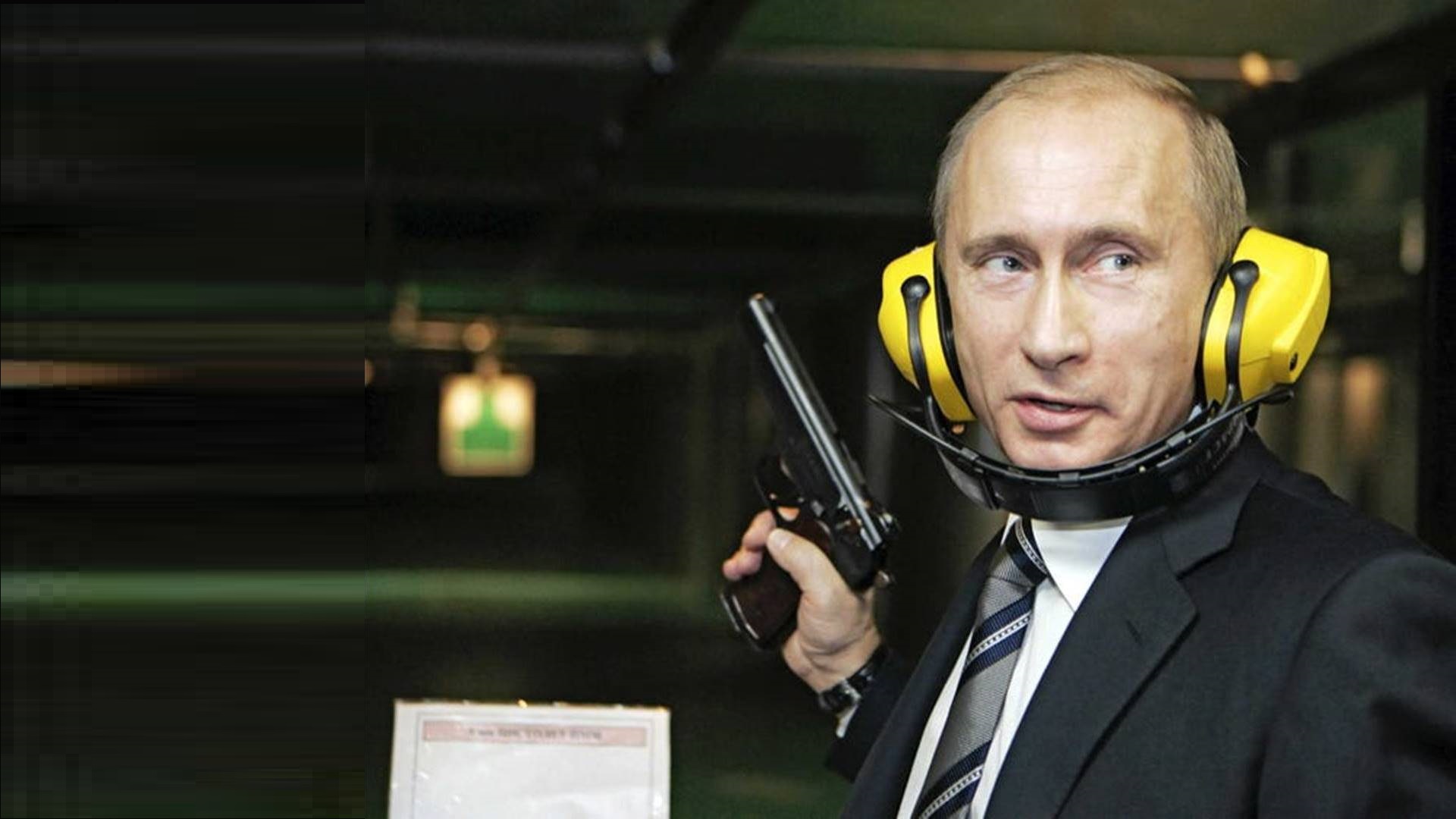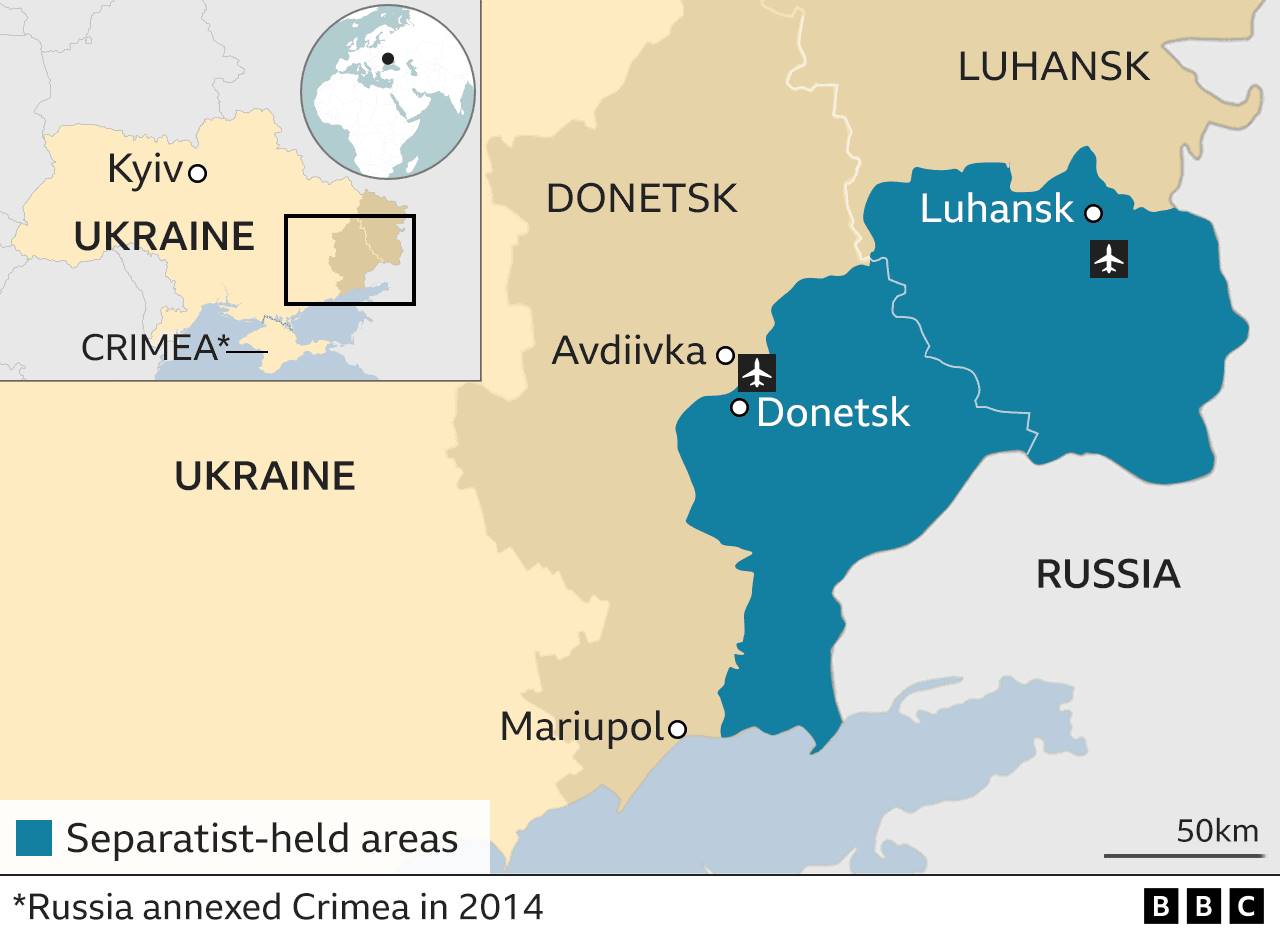Ukraine-Russia: Putin mulls recognizing the independence of breakaway regions

Russia will decide today whether to recognize the independence of two breakaway regions in eastern Ukraine, President Vladimir Putin has said.
The Donetsk and Luhansk regions have been contested by Ukraine and Russia-backed rebels for years, with regular violence despite a ceasefire agreement.
Leaders of both regions asked Russia to recognize their independence on Monday.
Ukraine crisis: Russia keeps troops in Belarus amid Ukraine fears
But Western powers fear such a move could be used as a pretext for Russia to invade its neighbor.
Since 2019, Russia has issued large numbers of passports to people living in the two regions.
Analysts say that if the two regions were recognized as independent, Russia might send troops into Ukraine’s east under the guise of protecting its citizens.
Ukraine conflict: Rebels declare general mobilization as fighting grows
Russia has built up more than 150,000 troops on Ukraine’s borders, a move that has widely been seen by Western nations as preparation for an imminent invasion. Russia denies any such plans.
Mr. Putin will give a televised address to the nation on Monday evening, according to Russian media, but no exact time has been given.
At a televised meeting of the Russian security council on Monday, Mr. Putin said he was considering recognizing both breakaway regions as states.
“The objective of our meeting today is to listen to colleagues and decide on our next steps in this area,” Mr. Putin said.
“I mean both the appeal to Russia made by the heads of the Donetsk People’s Republic and the Luhansk People’s Republic for the recognition of their sovereignty,” he added.
Several officials at the council meeting spoke up in favor of the move, and the Russian parliament has already asked Mr. Putin to recognize their independence.
But the Russian President did not indicate his final decision, saying it would be made later Monday.
This was a piece of theatre in which everyone had their allotted role and script.
Russia’s most senior officials sat in an awkward-looking semi-circle before Vladimir Putin and were called upon one by one to tell him what he wanted to hear.
In the story they spun, Russia was being compelled to step in to protect the people of the Donbas – many of them now Russian citizens – from the deadly threat posed by Kyiv, by giving formal recognition to the breakaway regions. The word genocide was uttered again; Ukraine’s government was described as puppets of the West.
Some played their part with more gusto than others. At one point, a dry-mouthed and stumbling intelligence chief strayed off script and declared his support for incorporating the breakaway regions into Russia. He was corrected like an errant schoolboy by President Putin.
The actual decision – which would end any peace talks with Kyiv – hasn’t been announced yet. In a final flourish, Vladimir Putin said he would first mull over what he’d heard, then make his call.
Which sounded rather like a challenge to the US to try and stop him.

The move came amid a day of claim and counter-claim by Russia and Ukraine about events on the frontlines of the contested region.
In Donestk and Luhansk, the Russia-backed rebel groups have been locked in an uneasy ceasefire with Ukrainian forces since 2015 with frequent violations.
International monitors report a “dramatic increase” in attacks along the line dividing rebel and government forces. Two Ukrainian soldiers were killed and four injured by shelling on Saturday, the first deaths to be reported in weeks.
The rebels, meanwhile, have alleged casualties on their side, including at least one civilian, and Russia has evacuated some women and children from the regions to Russian soil.
Moscow and the separatist rebels have claimed Ukraine is planning an assault to retake the areas, but this has been dismissed by both Kyiv and the West.
Russian military officials said they had killed five Ukrainians who crossed into Russia’s territory from Ukraine, and that one Ukrainian soldier had been captured. Russia also claimed that one of its border crossing posts had been destroyed by shelling from Ukraine.
The allegations prompted Ukrainian Foreign Minister Dmytro Kuleba to take to social media and accuse Russia of carrying out a wider disinformation campaign.
“Russia, stop your fake-producing factory now,” he wrote.
No, Ukraine did NOT:
❌Attack Donetsk or Luhansk
❌Send saboteurs or APCs over the Russian border
❌Shell Russian territory
❌Shell Russian border crossing
❌Conduct acts of sabotageUkraine also does NOT plan any such actions.
Russia, stop your fake-producing factory now.
— Dmytro Kuleba (@DmytroKuleba) February 21, 2022
Earlier, US President Joe Biden agreed “in principle” to hold a summit with Mr. Putin.
The hoped-for talks were brokered by the French presidency after two lengthy phone calls with Mr. Putin, but have not been confirmed. The Kremlin then sought to downplay the likelihood of any summit, saying there were no “concrete plans”.
However, US Secretary of State Antony Blinken and his Russian counterpart Sergei Lavrov are due to meet for talks later this week as attempts to find a diplomatic solution continue.
Napomena o autorskim pravima: Dozvoljeno preuzimanje sadržaja isključivo uz navođenje linka prema stranici našeg portala sa koje je sadržaj preuzet. Stavovi izraženi u ovom tekstu autorovi su i ne odražavaju nužno uredničku politiku The Balkantimes Press.
Copyright Notice: It is allowed to download the content only by providing a link to the page of our portal from which the content was downloaded. The views expressed in this text are those of the authors and do not necessarily reflect the editorial policies of The Balkantimes Press.
